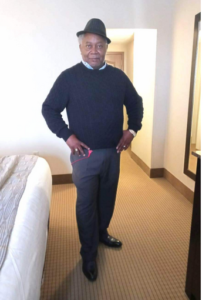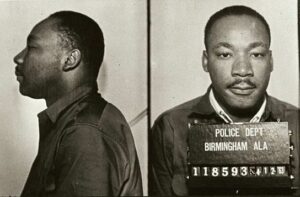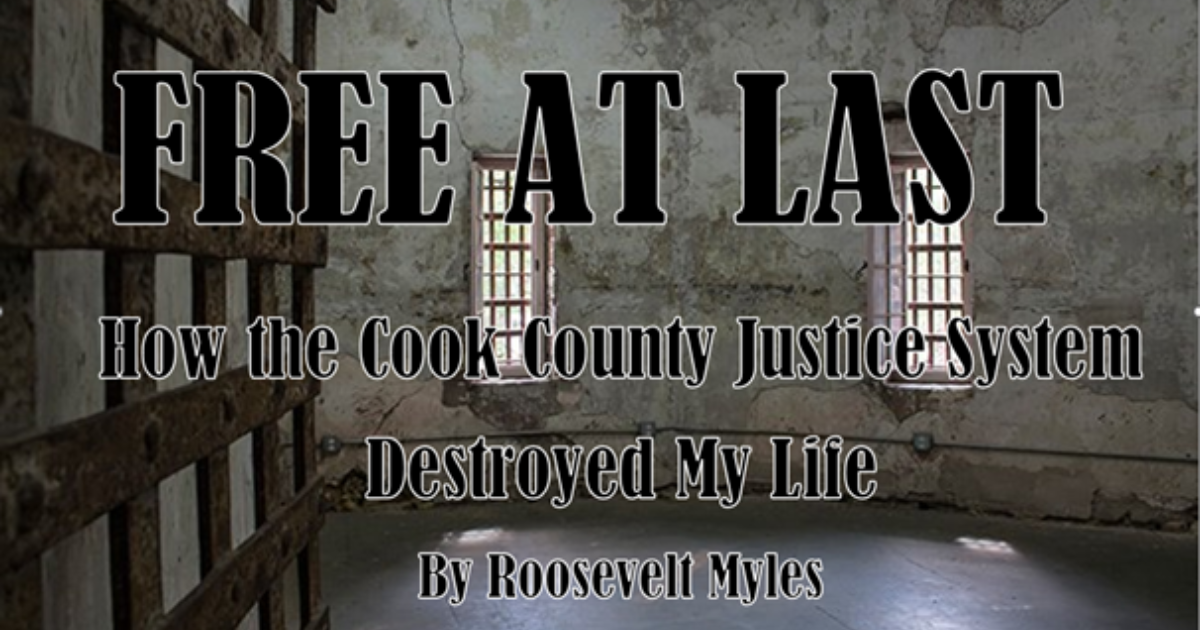EDITOR’S NOTE: The following story is Roosevelt Myles’ personal account of his life after being wrongfully convicted in 1996 of murdering 16-year-old Shaharian “Tony” Brandon on the West Side in 1992. He was sentenced to 60 years in prison. He was released from the Canton Illinois Correctional Center in 2020 after serving 28 years behind bars.
While in prison, Myles fought to clear his name. The Cook County State’s Attorney Office fought his post-conviction appeal and at one point had it dismissed. After waiting 22 years just for a hearing due to endless delays, Myles finally had his day in court on December 5, 2022. That day a Cook County judge vacated his murder conviction.
As with the Howard Carter case, the Crusader reported extensively on Myles’ case through numerous articles that documented the injustices he endured in his fight for freedom.
Thousands of wrongfully convicted Black men and women in Chicago and across the country face the same ordeal.
Before Dr. Martin Luther King was assassinated in 1968, he preached on mass incarceration and racial injustice. In 1963, King was arrested 30 times. Eugene “Bull” Connor, the police commissioner of Birmingham, Alabama, had King arrested for demonstrating in violation of a court injunction. For that crime, King spent 11 days behind bars, during which he wrote his famous “Letter From Birmingham Jail.”
Since 1963, the number of people sitting in jail has skyrocketed. Approximately 630,000 people have been held in more than 3,000 local jails across the United States. Seventy percent are awaiting trial according to the Prison Policy Initiative. The Vera Institute of Justice reports that Black Americans are jailed at nearly four times the rate of white Americans.
According to the Equal Justice Initiative (EJI), there are more innocent people in our jails and prisons today than ever before. Blacks make up 47 percent of exonerations even though they are only 13 percent of the U.S. population. Innocent Black people are about seven times more likely to be convicted of murder than innocent white people, and Black people who are convicted of murder are about 50 percent more likely to be innocent than non-Black people convicted of murder.
While reporting on Myles’ case, the Crusader has received numerous calls from prisoners who say Chicago police forced them to confess to crimes they did not commit. Cook County State’s Attorney Kim Fox has had over 200 convictions thrown out after investigations revealed disgraced Chicago police Sgt. Ronald Watts and Detective Reynaldo Guevara’s nefarious behavior.
But very little has been done to investigate the police misconduct cases of disgraced Detective Anthony Wojcik, who retired years ago after he was recommended for termination for his lying and falsifying police reports in the Laquan McDonald case. Myles was one of Wojcik’s victims.
By Roosevelt Myles

December 5 was a day that I waited for. That day, Judge Carol Howard threw out my murder conviction after a Cook County prosecutor asked her to vacate my conviction. Prosecutor Todd Dombrowski finally gave up in challenging my post- conviction appeal. My perseverance finally paid off following three decades of the Cook County State’s Attorney office’s failure to correct wrongs they created in my case.
My ordeal started in 1992. I was beaten by Chicago Detective Anthony Wojcik for hours to confess to a murder that I did not do and had no clue about. I never confessed to anything, yet the States Attorney’s office brought charges against me for murder. I was convicted in 1996 of first-degree murder and spent 28 years in jail before I was released in 2020.
Now, I’m not only a free man. I’m no longer a convicted felon with a criminal record. But my fight for justice isn’t over.
Thirty years later after I was unjustly arrested, wrongfully accused and finally exonerated, I remain an emotionally scarred man with unanswered questions.
Why did it take so long for the Cook County State’s Attorney’s office to do what’s right? I have endured so much pain since this ordeal began as I struggled to keep my sanity through all of this. I have no desire to return to Chicago to live after my life was destroyed by the city’s police department. I never had the life and family that many people enjoy as part of the American Dream.
Most people spend their lives building careers and wealth. I spent mine in jail, working for pennies in a dead-end job. Illinois like many states has laws that take advantage of a clause in the U.S. Constitution slavery amendment. Known as the 13th amendment, it allows states to force inmates to become slaves by working for extremely low wages as part of their punishment.
While I was a wrongfully convicted Black man all those years, I was also a slave who had no rights, no freedom and no future, like my ancestors. Cook County’s justice system did this to me.
However, while behind bars, I fought back. I studied books and legal journals about Illinois criminal laws. My studies led me to become a certified paralegal.
When I was released from prison, I did not know how to use a cell phone or set up a Facebook page or Twitter account. I had no credit. I felt inferior and different in a world that moved on while I was held back for 10,220 days.
At this late stage in my life, I will never have children to carry my name as a symbol of my legacy as a man who fought the second largest criminal justice system in America and won.
At times, it seemed like a lonely road. Most agencies that help clear wrongfully convicted people did not consider taking my case. Numerous U.S. Congressmen and prominent political leaders never returned my emails. News organizations never showed up to my hearings. But the Chicago Crusader did.
This 30-year battle to clear my name took a huge toll on me, emotionally, mentally and physically. During these years, I lost both of my parents. My mother died in 2016. I had not seen her for over 20 years. We talked over the phone twice a week, but it wasn’t the same as seeing her in person. My dad died in 2017, seven months after his bride of 58 years passed.
Since my release from jail, I’ve been unable hold a steady job because of physical problems. My knees that had been damaged while I was pressured to falsely confess to murder, hurt constantly and require surgery. I can’t keep a job that requires me to stand for long periods of time.
After I was released, I was forced to wear a device for two years as part of my parole period. Every job I worked had to be listed by the sheriff’s office. The car I drove had many mechanical problems but I had no money to pay for the repairs. I relied on my fiancée and friends for help. As a proud Black man who strives to be a provider, asking for help has been a humbling thing. At times, it felt humiliating.
Justice delayed is justice denied. This letter is about my victory but it’s also about suffering and pain that at times was overwhelming and unbearable.

Though I’ve been vindicated the battle is not over. More than a month after being exonerated, my conviction is still on the murder registry. But I’m a fighter. I’m going to fight ‘til the end, as Dr. Martin Luther King Jr. did; as my parents did.
I never thought I would spend 30 years in prison for killing someone I didn’t even know. I must thank my EXTRAORDINARY legal team, the Bonjean Legal Group (BLG), its owner Jennifer Bonjean, and her attorneys Ashley Cohen and Samuel Kennedy. They are my earth angels. With more steps to bring this long ordeal to a close, I need all the continued support I can get.
I thank the Chicago Crusader for its support. Publisher Dorothy Leavell and journalist Erick Johnson have been magnificent allies in my fight for true justice. I appreciate letters and questions that emailed at [email protected]. Thank you for your time and understanding.






